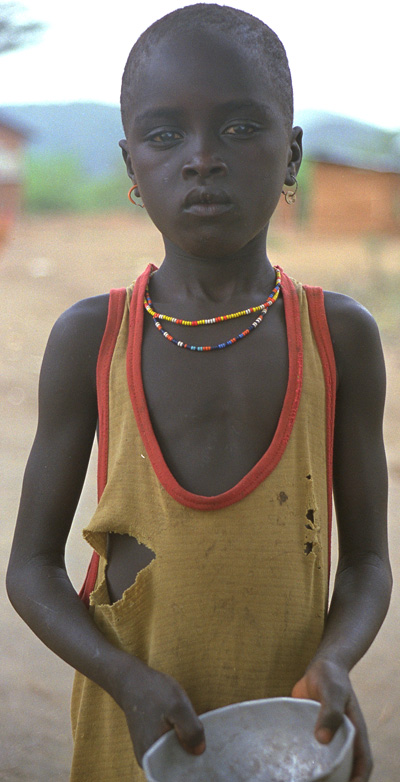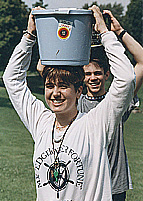 Christopher Redner, an award-winning television producer, journalist and founder of Children In Need, has traveled worldwide, reporting on the developing world. Redner wants his work to help people develop an intelligent, compassionate response to global issues. That's why he created World Week.
Christopher Redner, an award-winning television producer, journalist and founder of Children In Need, has traveled worldwide, reporting on the developing world. Redner wants his work to help people develop an intelligent, compassionate response to global issues. That's why he created World Week.
"People often see images of hunger, violence, disease and environmental destruction on television or in print," Redner says. "Many shut these images out or say 'I can't do anything about that'. And you can't blame them.
"Unless you can place negative images - violence in the Middle East, Mexico or Rwanda, flooding in Bangladesh, destruction of the rain forest in Brazil or Indonesia - in a context and understand what caused them and what you can do, it is natural to shut the images out, emotionally if not literally. I want to help people better understand the kinds of experiences that I have seen, reported on and photographed.
"I want to help people discover that however bleak things look, we can change the world. We can't solve all the world's problems, but we can make things better. Perhaps the biggest change we can make is in how we understand our world and the people who share it with us. That's the motivating force behind World Week."
World Week includes fun and educational activities designed to help people understand what life is like for people suffering from disease, abuse, hunger, discrimination and environmental devastation. There are free leader's guides for each World Week activity that explain how to organize the event. There is also a DVD series in development.
 Participants in the "Water Walk," for example, take a four-mile (about six km) trek through downtown streets, carrying buckets of water on their heads. They learn how hard women work in developing countries just to gather water. And they can raise money to provide clean, safe water for people who desperately need it.
Participants in the "Water Walk," for example, take a four-mile (about six km) trek through downtown streets, carrying buckets of water on their heads. They learn how hard women work in developing countries just to gather water. And they can raise money to provide clean, safe water for people who desperately need it.
Participants in the "Gender Banquet" prepare and attend a meal during which they learn what it is like to be discriminated against on the basis of gender. Participants in "Prison Wear" design T-shirts honoring people subjected to human rights abuses, and write letters on their behalf.
By choosing a cross-section of activities, participants learn how major global issues are related - how poverty causes environmental degradation, how human rights violations thwart peace, how discrimination limits education or how lack of education fuels overpopulation.
Many participants are sponsored by friends, family and neighbors and raise money for people suffering from hunger, disease, abuse, discrimination and environmental degradation.
"Obviously we won't solve all our social and environmental problems in one week," Redner says. "But people can make a world of difference in a week. And if we follow up by learning and doing a bit more every week, we can have a tremendous impact.
"We can be the difference between life and death, between hope and despair for a lot of people. But getting involved with World Week doesn't just benefit the poor; it helps us.
"We all have a part in us that tends to be isolationist or selfish, that fuels our fear or mistrust," Redner says. "It is very easy to become apathetic or cynical. But part of us cares about others and wants to make a difference in our world. We need to nurture that part. We do that when we participate in something like World Week. We develop understanding and compassion, and that makes us better people and our world a better place for everyone we touch."
Watch the World Week video now.
© Copyright 1991-2025, Children In Need. All photos by Christopher Redner/Children In Need, unless otherwise noted. You may download and distribute text. If you wish to use the images or photographs, please call (253) 874-8400.